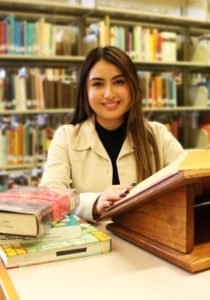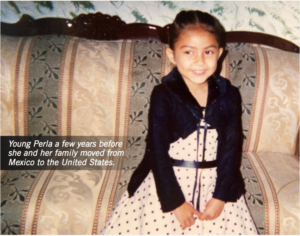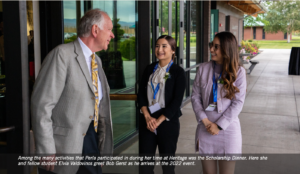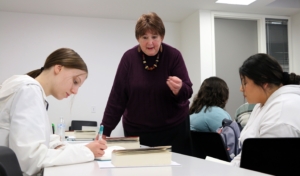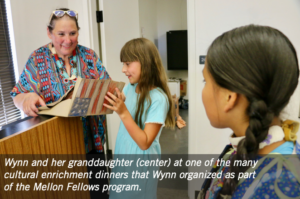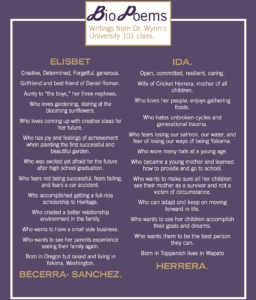Class Notes – WINGS Summer 2023
 2015
2015
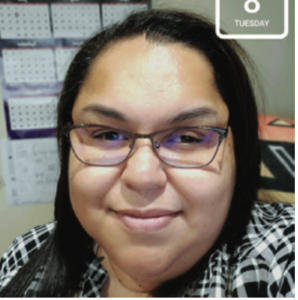 Cialita Keys (B.A., Environmental Studies) joined the Community Development team with the City of The Dalles in Oregon, where she is working as a planning technician. Prior to this, she worked for the Yakama Nation Environmental Management as a resource coordinator.
Cialita Keys (B.A., Environmental Studies) joined the Community Development team with the City of The Dalles in Oregon, where she is working as a planning technician. Prior to this, she worked for the Yakama Nation Environmental Management as a resource coordinator.
2018
Gabriel Antunez (A.S., Pre- Engineering) graduated from Washington State University with a Bachelor of Engineering in Mechanical Engineering in May.
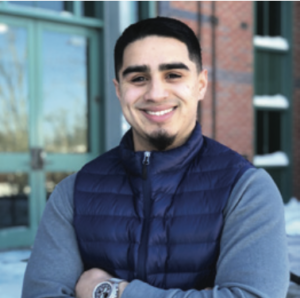
Jose Ortiz-Garcia, Ph.D. (B.S.) graduated from the University of Connecticut with a Doctor of Philosophy in Physical Chemistry in May. In June, he joined Pacific Northwest National Laboratory, where he is a physical chemist and a postdoctoral research associate doing catalysis on metal oxide surfaces for the activation of C-H bonds.
2019
Jose Carrillo (B.A., Business Administration) joined the Business and Professions Division at the Washington State Department of Licensing, where he is working as an excise tax examiner. Prior to this, he was a financial aid program coordinator at Heritage University.
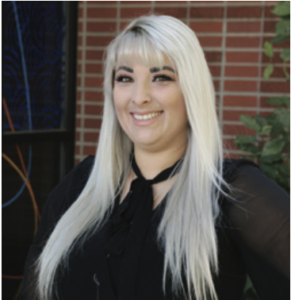 Maria Diaz (B.A., Psychology) started a new position at the Yakama Nation Tribal School. She is the school’s new counselor. Maria spent four years prior to this working as the enrollment services coordinator at Heritage University in the Admissions department. Additionally, she earned a Master of Arts in Psychology from Fisher College in May 2022.
Maria Diaz (B.A., Psychology) started a new position at the Yakama Nation Tribal School. She is the school’s new counselor. Maria spent four years prior to this working as the enrollment services coordinator at Heritage University in the Admissions department. Additionally, she earned a Master of Arts in Psychology from Fisher College in May 2022.
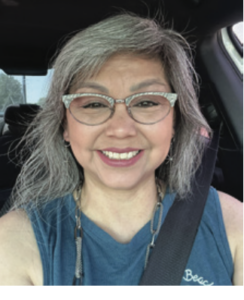 Brenda Lewis (B.A., Business Administration) joined Heritage University’s Admissions team in May. She is working as a transfer student admissions counselor. Prior to this, she spent two years working as a general ledger accountant for the Yakama Nation.
Brenda Lewis (B.A., Business Administration) joined Heritage University’s Admissions team in May. She is working as a transfer student admissions counselor. Prior to this, she spent two years working as a general ledger accountant for the Yakama Nation.
2023
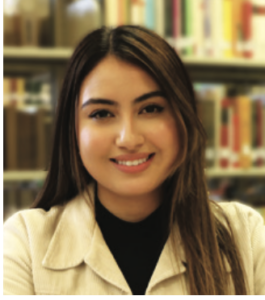 Perla Bolaños-Zapian (B.A., Business Administration) joined the Heritage University Advancement Team as the Donor Events and Stewardship Coordinator.
Perla Bolaños-Zapian (B.A., Business Administration) joined the Heritage University Advancement Team as the Donor Events and Stewardship Coordinator.

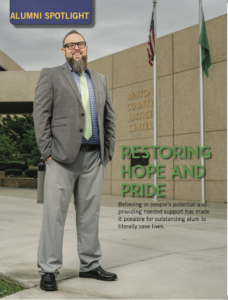
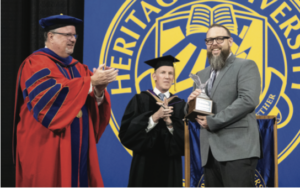
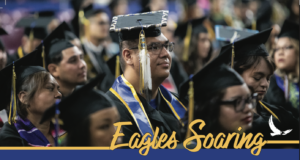
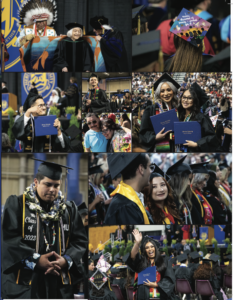


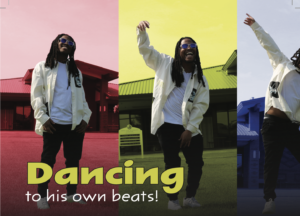
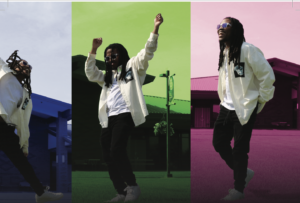
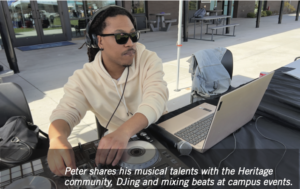
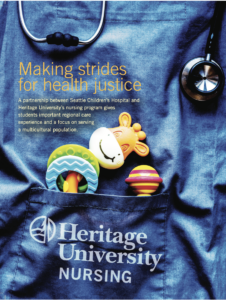
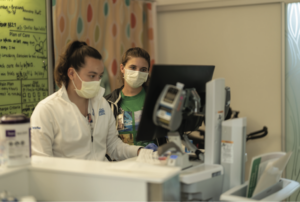

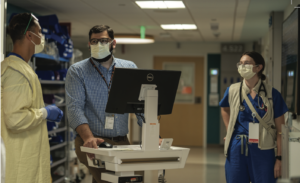
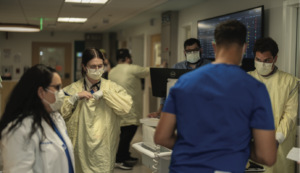

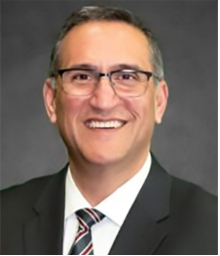 Mike Villarreal (M.Ed., Educational Administration) was elected to serve as president of the Washington Association of School Administrators for the 2002-23 academic year. Villarreal is the superintendent of Hoquiam School District, a position he’s filled since 2017.
Mike Villarreal (M.Ed., Educational Administration) was elected to serve as president of the Washington Association of School Administrators for the 2002-23 academic year. Villarreal is the superintendent of Hoquiam School District, a position he’s filled since 2017.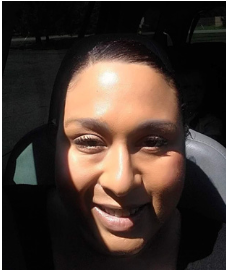
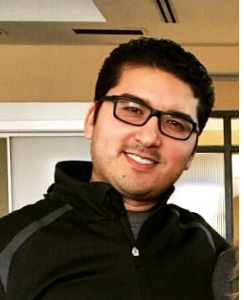 Francisco Ramirez-Amezcua (B.A., Environmental Studies) is a migrant graduation specialist at Sunnyside High School. This past fall, he was awarded Student Support Staff of the Year for the Sunnyside School District.
Francisco Ramirez-Amezcua (B.A., Environmental Studies) is a migrant graduation specialist at Sunnyside High School. This past fall, he was awarded Student Support Staff of the Year for the Sunnyside School District.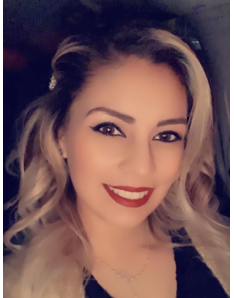 Dalia Chavez (B.A., Criminal Justice) joined the Washington State Human Rights Commission (WSHRC), where she serves as a civil rights investigator based in the Yakima Valley. The WSHRC is a state agency responsible for administering and enforcing the Washington Law Against Discrimination.
Dalia Chavez (B.A., Criminal Justice) joined the Washington State Human Rights Commission (WSHRC), where she serves as a civil rights investigator based in the Yakima Valley. The WSHRC is a state agency responsible for administering and enforcing the Washington Law Against Discrimination.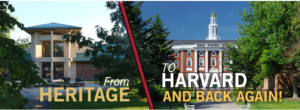
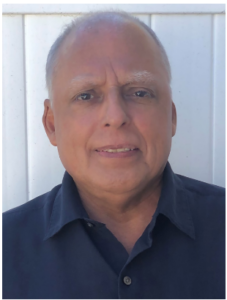
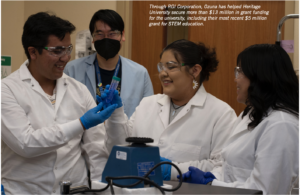
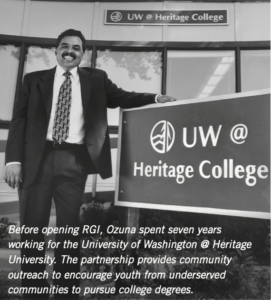 “I had worked with students and families one- on-one,” he says. “Instead of touching lives one at a time, I wanted my work to have a positive effect on as many people as possible, to do things on more of a macro instead of a micro level.”
“I had worked with students and families one- on-one,” he says. “Instead of touching lives one at a time, I wanted my work to have a positive effect on as many people as possible, to do things on more of a macro instead of a micro level.”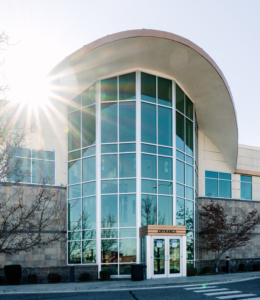
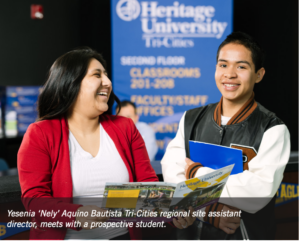 “Students will have the opportunity to transfer seamlessly between campuses, and some classes may be offered in a hybrid format where classes are delivered both in-class and online between the two campuses. The linkage between the two campuses will present a tremendous range of possibilities for students to study in their field of interest,” said Sund.
“Students will have the opportunity to transfer seamlessly between campuses, and some classes may be offered in a hybrid format where classes are delivered both in-class and online between the two campuses. The linkage between the two campuses will present a tremendous range of possibilities for students to study in their field of interest,” said Sund.